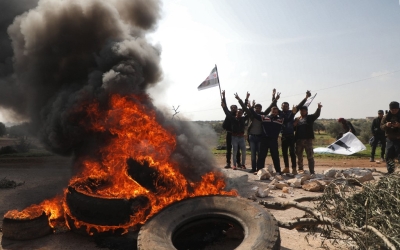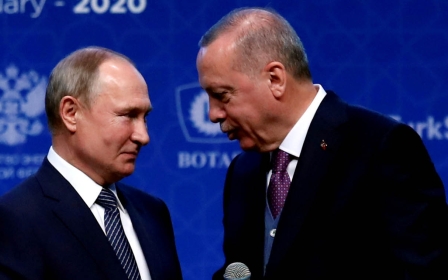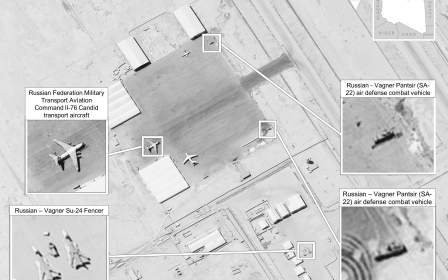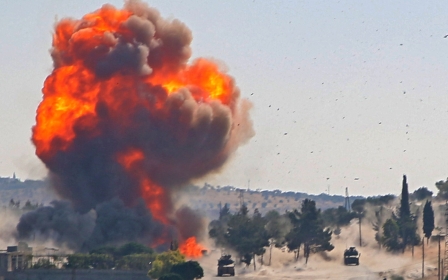Libya conflict: US threatens Haftar with sanctions over oil blockade
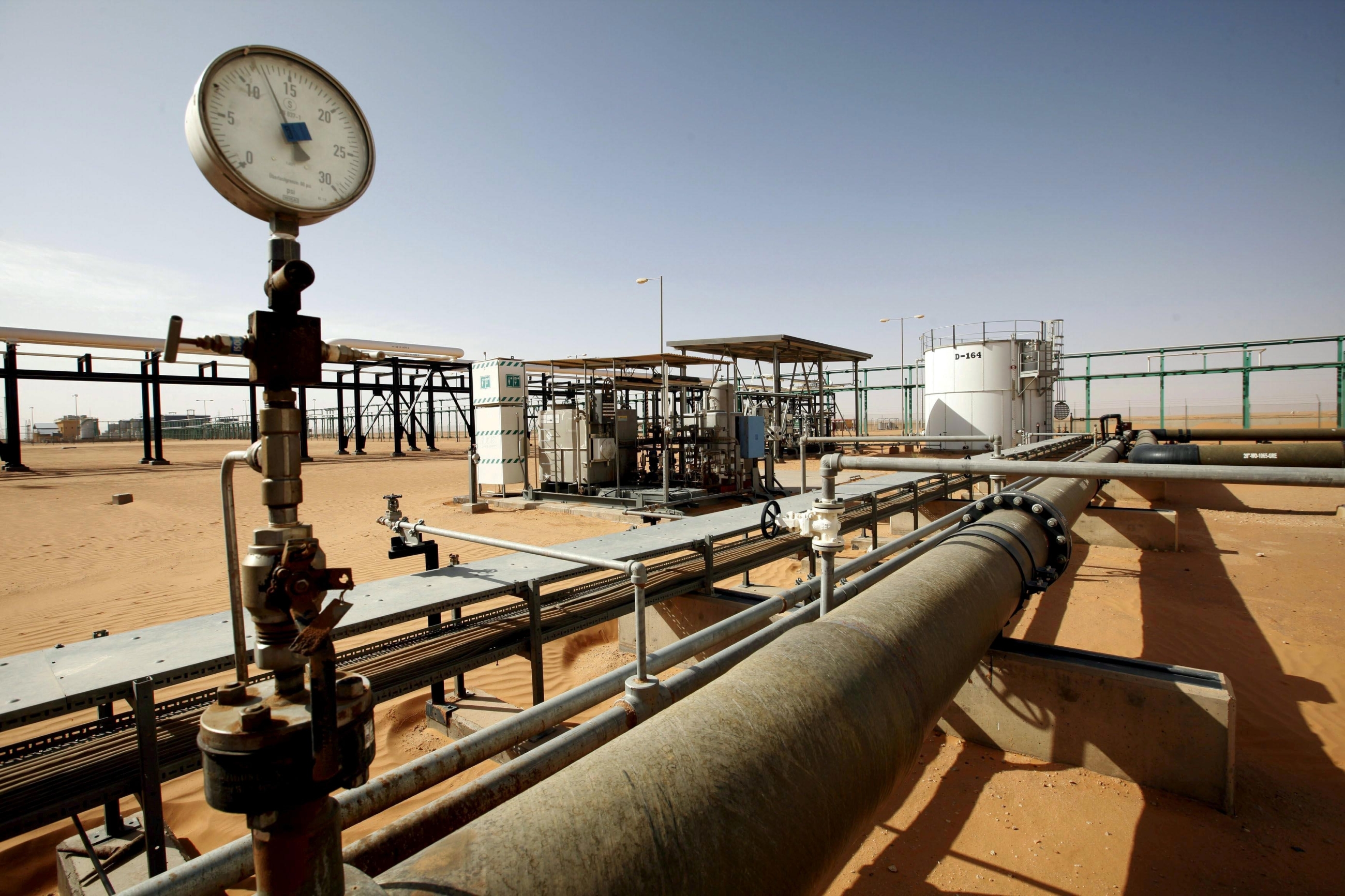
The US has threatened Libya's eastern military commander Khalifa Haftar with sanctions and accused Russian military contractors with ties to the Kremlin of seizing the country's largest oil field and export terminal, the Wall Street Journal reported.
The newspaper reported on Sunday that Haftar, who controls the bulk of Libya's key oil infrastructure, had reneged on reopening exports since mid-June when the Wagner Group - a Russian paramilitary organisation accused of aiding his offensive against Libya's internationally recognised government - moved to the Es-Sider terminal.
Haftar's forces have imposed a blockade on all Libyan oil terminals since January, which has cost the war-ravaged country billions in revenue and sent production plummeting from more than 1 million barrels per day (bpd) to fewer than 100,000 bpd.
Last month, there had been signs that the blockade could come to an end but, according to the WSJ, Haftar changed tack when the Wagner group seized control of the Es-Sider terminal.
While the United States has sent mixed signals to Libya's rival sides over the course of the war, Washington has become increasingly concerned over Moscow's growing influence in the North African country.
One US official told the WSJ: "The State Department communicated the threat of sanctions to Haftar because he was being ridiculous and uncompromising with oil installations in eastern Libya."
Without mentioning names or states, the US embassy in Libya also threatened those who "undermine Libya's economy" with sanctions, in a statement earlier this month.
"The door remains open for all who lay down weapons, reject foreign manipulation, and come together in peaceful dialogue to be a part of the solution; however, those who undermine Libya's economy and cling to military escalation will face isolation and risk of sanctions," the embassy statement said.
According to the WSJ, Washington has already sanctioned Yevgeny Prigozhin, who is believed to own Wagner, over the group's operations in Libya.
Last week, US Africa Command took the unusual step of revealing Russian mercenary deployments in Libya through a series of public statements, accompanied by satellite photos and other imagery.
Vulnerable to US sanctions
Since 2014, Libya has been split between areas controlled by the internationally recognised Government of National Accord (GNA) and territory held by forces loyal to eastern commander Khalifa Haftar.
Turkey, along with regional ally Qatar, has backed the GNA, while Russian mercenaries, the United Arab Emirates and Egypt have supported Haftar.
Last week, Turkey and Russia agreed to keep pushing for a ceasefire, but Ankara has continued to insist that Haftar is not a legitimate leader, and that his forces must withdraw from key positions for any credible deal to emerge.
Ibrahim Kalin, the Turkish presidential spokesman, told Reuters on Wednesday that any ceasefire deal must be based on a return to the 2015 front lines, which would require Haftar's forces to pull back from the Mediterranean city of Sirte, the gateway to Libya's eastern oilfields, and al-Jufra, an airbase near the centre of the country.
Haftar, a US citizen, used to live in exile in the leafy suburbs of northern Virginia between the late 1990s and 2007.
In February, two families filed a lawsuit against the military commander and his son, alleging that Haftar's forces tortured members of their families.
Middle East Eye delivers independent and unrivalled coverage and analysis of the Middle East, North Africa and beyond. To learn more about republishing this content and the associated fees, please fill out this form. More about MEE can be found here.


